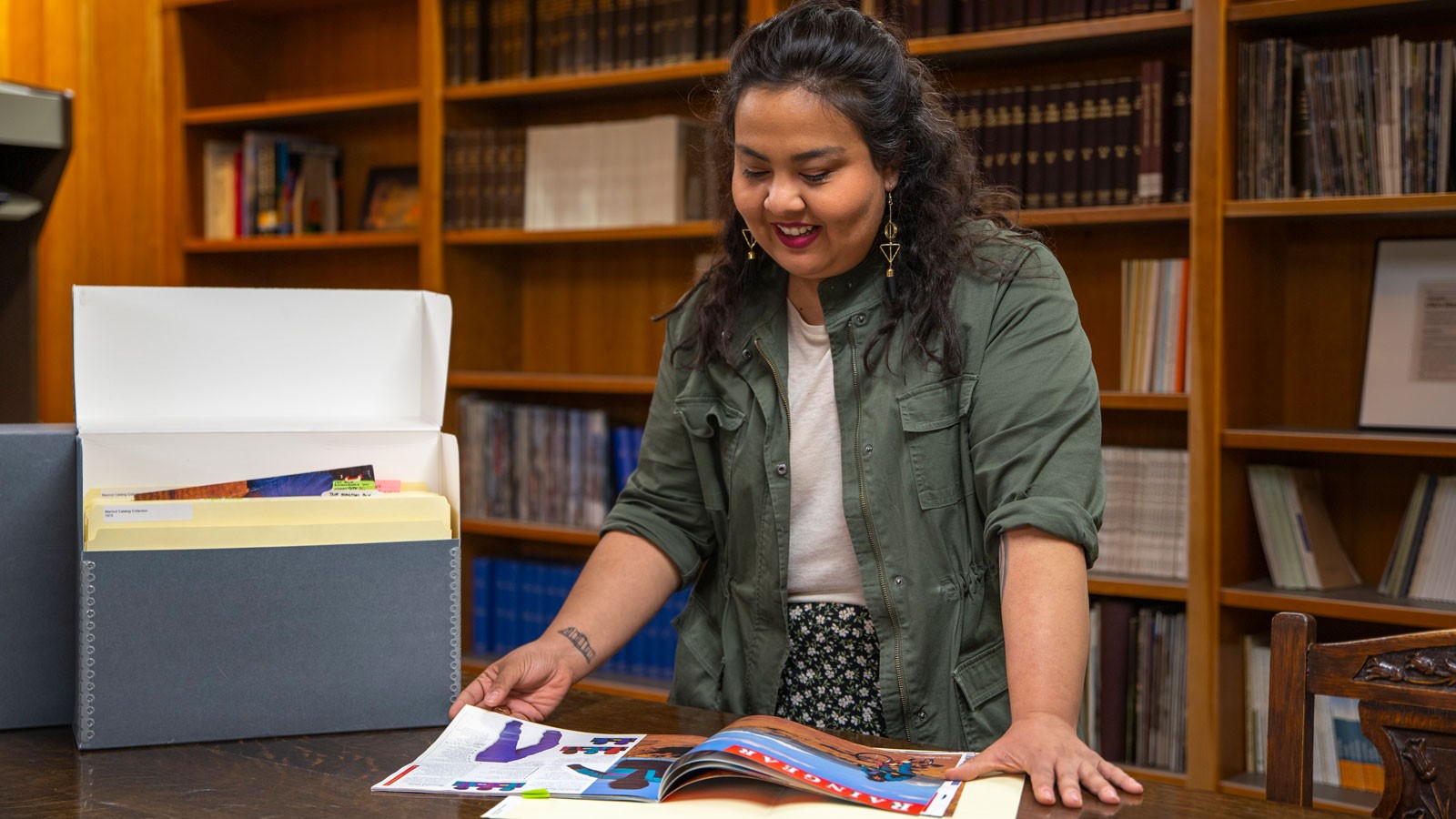USU Libraries Student to Host Personal Archiving Workshop
By Kellianne Gammill |
Monique Davila works to catalog items in the Reading Room of the Merrill-Cazier Library.
After Utah State University Libraries graduate student fellow Monique Davila noticed a lack of diversity in the archival repositories housed in USU Special Collections & Archives, she had the idea to host a workshop to encourage marginalized students to preserve their family history.
“This project is personal for me as I am very unfamiliar with my own family history and do not have much archival materials to document this missing information. With the passing of many close family members, including my mom in 2017, I lost the ability to learn most of this history,” Davila said. “Because of this, I strongly believe learning how to preserve archives, including how to conduct oral histories, is extremely beneficial for people unfamiliar with this knowledge as it will help preserve their own family history.”
Davila is a graduate student studying history. She’s worked in Special Collections & Archives since August 2020 as part of a graduate fellowship.
“This project stems from my own personal experience as a Mexican American woman whose family did not know or understand the value of preserving such important familial records, and from noticing the lack of diverse collections in many archival repositories, including our own at USU,” Davila said.
The Personal Archiving Open House will be from 3-5 p.m. April 11 in Merrill-Cazier Library Room 101.
“The goal for this workshop is to share the importance of archival preservation and familial histories to historically excluded people in the hopes that their history can be preserved in their own homes and in archival repositories,” Davila said. “Learning such significant information will let minoritized communities know that their history matters and that their histories must be preserved and documented for future knowledge.”
The Open House will have various workshop stations. The stations will allow students to browse archival materials, experience different archival methods, and learn how to properly care for archival materials, such as photos, journals, papers, letters, digital files, oral histories and other materials.
“Most times, the voices of minoritized groups were ignored and their histories minimized or forgotten, which in turn prevented many of their histories from being preserved in archival repositories,” Davila said. “Now more than ever, minoritized groups are reclaiming their history, and we are seeing more documentation of these groups in archival repositories as they have fought for the opportunities to be seen, heard and to be represented in U.S. narratives. Yet we still need a lot more representation of these groups, and sharing the importance of archival preservation and familial history is needed for this to continue and prosper.”
This event is in collaboration with USU’s Inclusion Center and Latinx Cultural Center, USU Special Collections & Archives. All are invited to attend and learn how to preserve their personal histories.
“Preserving the stories of minoritized communities is important for so many reasons,” Davila said. “Doing so allows their histories to be documented for further research. But not only that, preserving their history allows their voices to be heard rather than being excluded from U.S. historical narratives.”
WRITER
Kellianne Gammill
Public Relations Specialist
University Libraries
(435) 797-0555
kellianne.gammill@usu.edu
CONTACT
Clint Pumphrey
Manuscript Curator
Merrill-Cazier Library
clint.pumphrey@usu.edu
Monique Davila
monique.davila@usu.edu
TOPICS
Diversity & Inclusion 251stories History 138stories Humanities 117stories Culture 75storiesComments and questions regarding this article may be directed to the contact person listed on this page.







